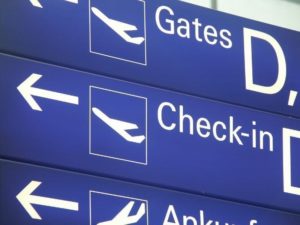
The initial testing phase of a biometric passenger screening system at the Dulles International Airport in Virginia has come to a close. Led by Unisys Corporation, the testing phase marked the start of a project contracted by the Department of Homeland Security’s Customs and Border Protection (CBP) department.
The system revolves around facial recognition. Travelers entering the United States through the airport have their faces scanned and compared against the comparable image data stored on their passports; if they don’t match, it’s an immediate flag to authorities that the travelers are impostors in some respect and likely entering the country illegally and under false pretenses. The facial scans are done continuously by a desktop camera, while passport inspections are done randomly.
With the testing phase complete, Unisys and the CBP are now considering an expansion of the system to other airports in the US. If that happens, though, it will likely spur further concerns from privacy and civil rights advocates about the scope of the project and its collection of citizens’ data.
Anticipating such concerns, Unisys asserted in a press release that the system won’t retain travelers’ images and that it “is a standalone system that will not communicate with any other CBP or Department of Homeland Security systems.” That will represent considerable restraint on the part of government authorities, who might otherwise be expected to be interested in matching travelers’ images against those in government databases of known criminals and terrorists.
In any case, the development represents a continuation of a trend that has seen biometric border control systems become increasingly popular around the world.
—
June 18, 2015 – by Alex Perala


Follow Us